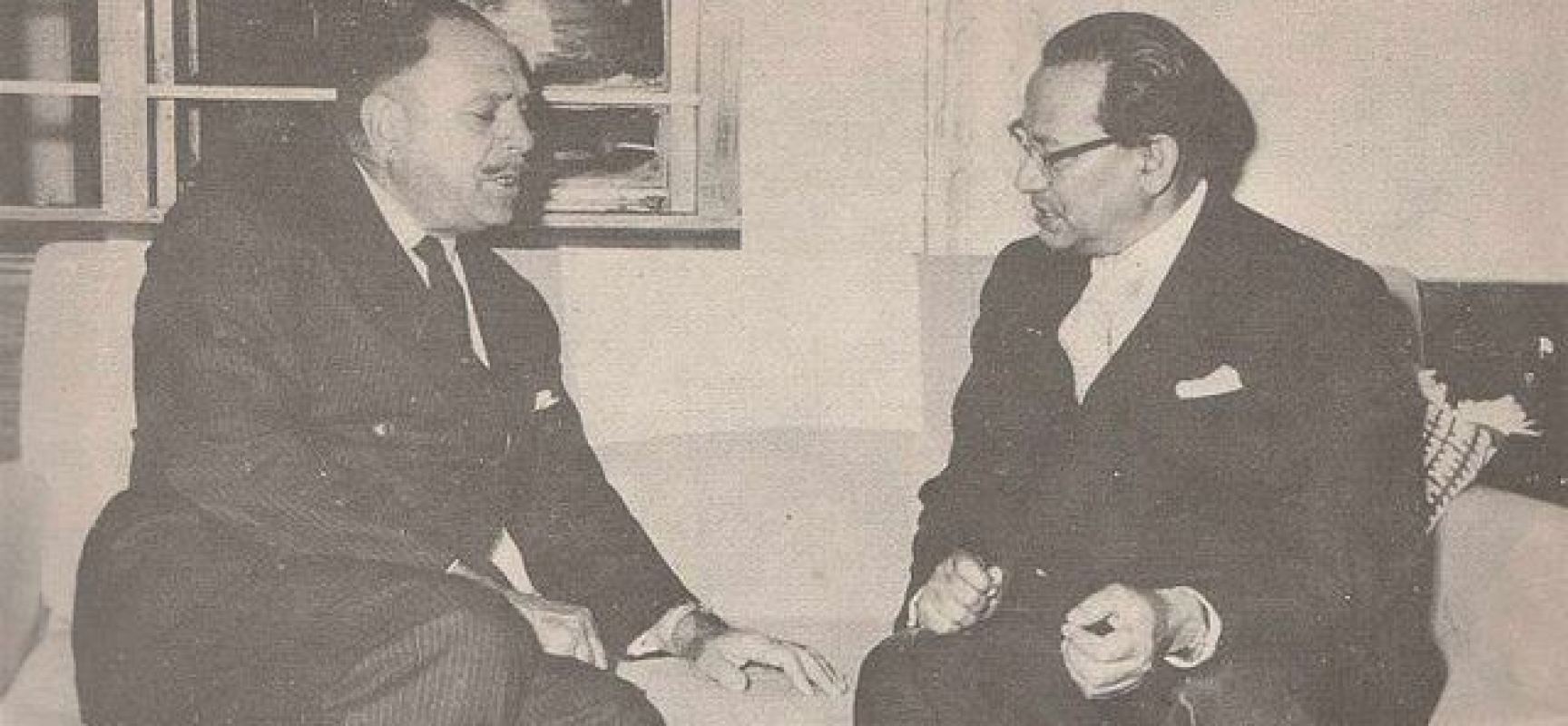When we talk about the times of Ayub Khan today, we generally talk about the ‘Decade of Development’. The decade which saw growth at ~ 5.82%.
This was the decade during which Pakistan’s manufacturing base became sizeable. It was this decade when Pakistan established an automobile industry, a cement industry and some other heavy manufacturing industries.
It was this decade when manufacturing growth, standing at 8.51%, outpaced any other time in the history of Pakistan.
If you understand the mechanics of manufacturing growth you will know that the more industry you establish (especially manufacturing) the more jobs you create, in turn making the common man’s life better.
Ayub Khan – the Dictator
Ayub Khan was involved in politics when he was inducted into Muhammad Ali Bogra’s Federal Cabinet in 1954, and given the portfolio of Defense.
In 1958 however, the then President, Iskander Mirza, enforced Martial Law for the first time and Ayub Khan was designated as the Chief Martial Law Administrator.
It wasn’t a bloody coup, in fact it was welcomed by the common man who was till then frustrated at the unstable political situation that was persistent in the country since 1947.
Ayub Khan – the Progressive Leader
After the takeover, Ayub began taking measures to eradicate corruption and several social problems that dogged the society. These measures increased his popularity among the people of Pakistan.
As mentioned earlier, Ayub’s time is known for its industrialization. During this time the private sector was encouraged and supported to start SME’s in Pakistan.
His other endeavors included efforts to raise the education standards by introducing educational reforms. He also tried to bring in land reforms but the idea failed due to issues with implementation. Certain Labor, law and administrative reforms were also brought about in this time.
And last but not the least, Islamabad was planned as the new capital of Pakistan and this high status was shifted from Karachi to Islamabad in 1962.
It is said that the Ayub’s martial law was not severe. The army’s role was limited and by 1959 most army units were back to their regular duties. Ayub Khan, most of the time left administration for the civil bureaucracy, with a few exceptions.
But not everything was so rosy…
Ayub Khan’s era is also known for its increase in income inequality and creating an oligopolistic structure of the economy which exists to this date in some form.
One of the biggest mistakes that Ayub Khan made was to fan the already seething anger among the Bengalis of West Pakistan by treating them like a step child.
A prime example of this was when East Pakistan was made to pay tariffs on sending products to West Pakistan, but the same was not the case when things moved from the West to the East.
Double standards and inequality issues such as these culminated in the partition of the country soon after Ayub’s resignation.
Then came the downfall
Things were fine till the war of 1965. The war triggered an economic slowdown and although Pakistan emerged victorious in the battlefield, Ayub Khan was criticized for failing on the negotiation table when signing the Tashkent Declaration.
Towards the end of 1968, the public sentiment was at the peak of its hatred towards Ayub Khan. A movement was launched against him by students, teachers, lawyers, doctors and engineers. The movement also had the Joint Labor Council calling for labor strikes.
The whole country was swept by demonstrations leading to a breakdown of law and order.
Finally, Ayub had to resign and on March 25, 1969, he handed over his powers to the then Commander-in-Chief of Pakistan Army, General Muhammad Yahya Khan….. Surprise! Another dictator.
The Times of Ayub Khan | Pakistan Insider
@BDforever @Luffy 500 @idune @A.Rafay @Ahmad1996 @Akheilos @Armstrong @arushbhai @AstanoshKhan @AZADPAKISTAN2009 @balixd @batmannow @Bilal. @chauvunist @Crypto @Dr. Stranglove @Evil Flare @EyanKhan @Fahad Khan 2 @GIANTsasquatch @graphican @Green Arrow @Guleen Ahmed @HRK @Jazzbot @Junaid B @Jzaib @Khalidr @khawaja07 @Leader @Luftwaffe @Marshmallow @mr42O @Muhammad Omar @nomi007 @Pak123 @Pakistani shaheens @Pakistanisage @Peaceful Civilian @pkuser2k12 @Pukhtoon @PWFI @raazh @Rafael @Rashid Mahmood @RescueRanger @Saifkhan12 @Sedqal @SHAMK9 @Spy Master @Stealth @Strike X @SUPARCO @sur @syedali73 @Tameem @Tayyab1796 @Zarvan @waleed3601 @AdeelFaheem @Rajput_Pakistani @Men in Green @IceCold @LoveIcon @razahassan1997 @Dil Pakistan @asq @junaid hamza @Pukhtoon @jamahir @Strigon @Rafi @Ulla @HughSlaman @420canada @sathya @slapshot @raza_888 @hacsan @SBD-3 @cb4 @AsianUnion @Aether @Proudpakistaniguy @WishLivePak @Waffen SS @FaujHistorian @Fracker @Ranches @ghoul @Jf Thunder @GreenFalcon @genmirajborgza786 @orangzaib @Pakistani Exile @KURUMAYA @Irfan Baloch @ali_raza @Syed.Ali.Haider @dexter @Patriots @muslim_pakistani @W.11 @Meengla @zaid butt @ajpirzada @Shoaib Rathore @OrionHunter @CHARGER @Major Sam @yesboss @TheNoob @Bratva @ghazaliy2k @Viny @StormShadow @suresh1773 @SOHEIL @venu309 @danish_vij @Force-India @faisal6309 @SpArK @S.U.R.B. @vsdave2302 @jarves @WAJsal @pursuit of happiness @Winchester @janon @pak-marine @AgNoStiC MuSliM @Donatello













